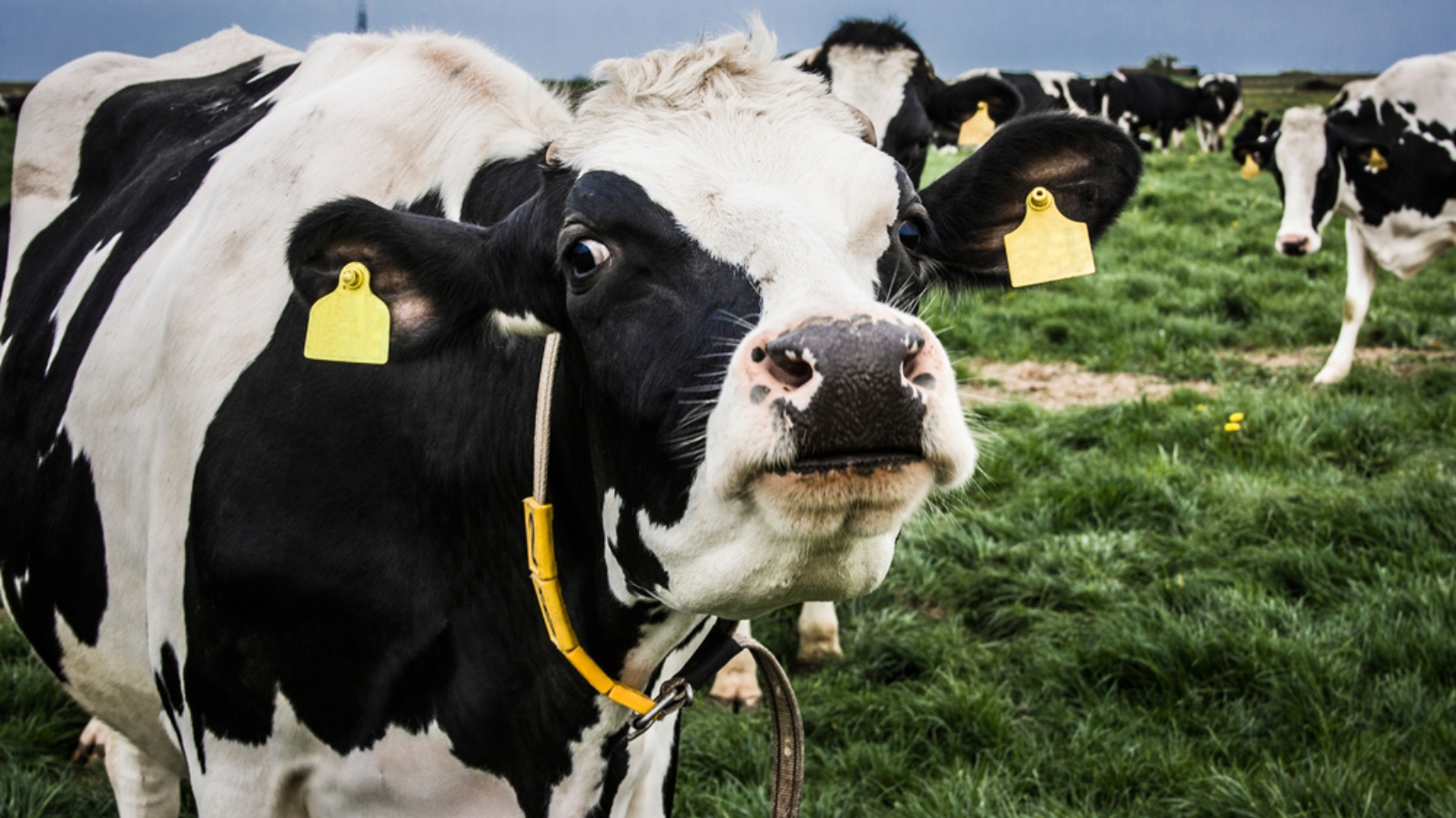It’s simply not fair. When we humans fart and burp we get told off for being rude, but when cows do exactly the same everybody throws up their arms in despair and grumbles about how they’re bringing the world to an end with their greenhouse gas emissions.
Help may be at hand, however, however, thanks to a new study that has found that cows’ genes can be used to manipulate their stomach microbiomes, which in turn control the amount of methane gasses that animals emit as part of their digestive process.
Researchers studied 1,016 cows (816 Holstein dairy cows and 200 Nordic Red dairy cows) in Italy, Finland, Sweden and Britain, and found that a small number of host-determined, heritable microbes in the cows contribute to explaining their experimental variables and host phenotypes.
This discovery, they predict, will lead to microbiome-led breeding or genetic programs that will provide a sustainable solution to reduce emissions from ruminant livestock as well as increase milk production efficiency.
The study, which was led by Prof. Itzhak Mizrahi of Ben-Gurion University and the National Institute for Biotechnology in the Negev and Prof. R.J. Wallace of Scotland’s University of Aberdeen, was recently published in the journal Science Advances.
“Our findings are a major breakthrough for basic science and will have a positive impact on two major challenges facing the international community for the foreseeable future: climate change and food security,” says Mizrahi.
“Even now, the planet is operating at maximum output for meat and dairy products, and that problem is only going to get worse in the coming decades: By 2050 the world will have approximately 9 billion people. That’s going to mean a serious crisis in protein nutrition.”
“We expect to be able to increase production efficiency while at the same time reducing methane emissions. It would be hard to think of a more important ‘win-win’ for the planet than that,” he added.
Fighting for Israel's truth
We cover what makes life in Israel so special — it's people. A non-profit organization, ISRAEL21c's team of journalists are committed to telling stories that humanize Israelis and show their positive impact on our world. You can bring these stories to life by making a donation of $6/month.









